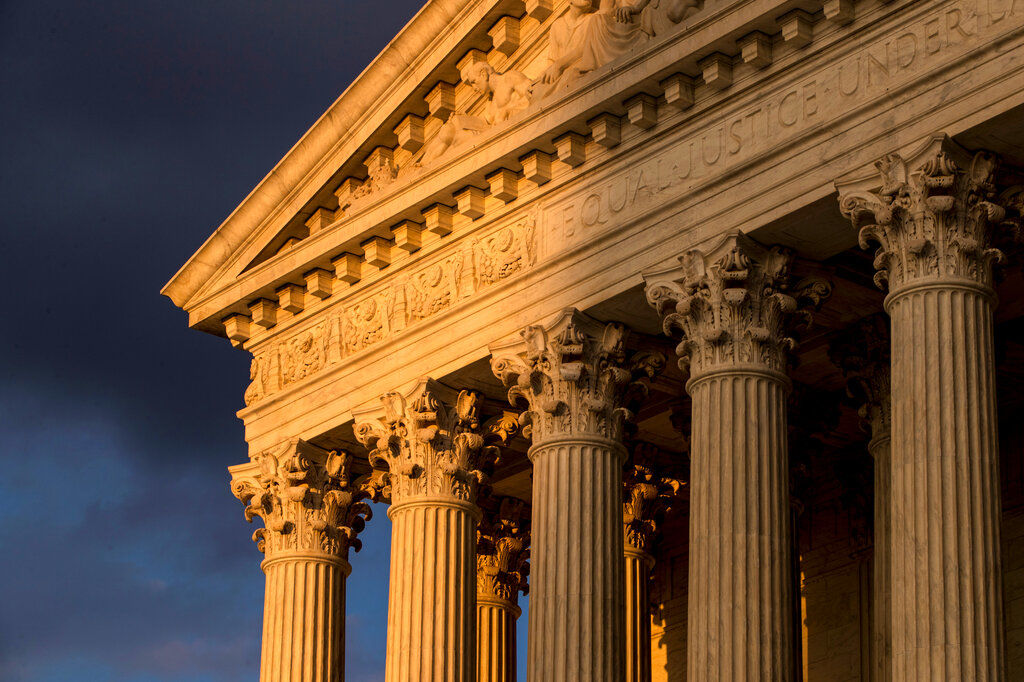SCOTUS takes up ‘true threats’ case out of Colorado, the latest in a series of state court appeals

The nation’s highest court has shone a spotlight on Colorado’s typically low-profile Court of Appeals, agreeing to review a decision of the 22-member court for the second time in under a decade.
The U.S. Supreme Court, in granting appeals, occasionally gives the green-light to federal cases that come through the Denver-based U.S. Court of Appeals for the 10th Circuit or state cases decided by the Colorado Supreme Court. But on Jan. 13, the justices announced they will hear People v. Counterman, a Court of Appeals decision from 2021 that found a man’s deluge of unwanted messages to a musician were not First Amendment-protected speech.
Prior to Counterman, the Supreme Court last agreed to review a Court of Appeals decision in 2017, in a high-profile case involving whether LGBTQ rights must give way to the religious beliefs of business owners: Masterpiece Cakeshop v. Colorado Civil Rights Commission.
“I had the good fortune to attend the oral argument at the U.S. Supreme Court,” Daniel M. Taubman, the Court of Appeals judge who authored the Masterpiece Cakeshop decision, told Colorado Politics. “Our former editor of decisions previously worked at the Supreme Court so she was able to get a reserved seat for me.”
A spokesperson for the Supreme Court said it does not keep statistics about the percentage of cases heard from state courts or from federal courts. However, the Supreme Court has reviewed several decisions from Colorado’s highest court in the past decade.
In Nelson v. Colorado, the U.S. Supreme Court reversed the Colorado Supreme Court in 2018, ruling that the state cannot keep defendants’ restitution and fee payments after their convictions are overturned. The court again reversed its state counterpart in the 2014 decision of Air Wisconsin Airlines Corp. v. Hoeper, which involved an airline’s immunity against a pilot’s defamation claims.
Finally, the U.S. Supreme Court again disagreed with the Colorado Supreme Court in the 2017 case of Peña-Rodriguez v. Colorado, holding that trial judges, during postconviction proceedings, can look at a juror’s racially-biased statements made during deliberations.
The most well-known recent case out of Colorado’s courts, however, was the one the state Supreme Court decided not to hear on appeal, Masterpiece Cakeshop. There, Jack Phillips, who owns a Lakewood bakery, declined to make a wedding cake for a gay couple because his Christian beliefs were in opposition to same-sex marriage. The Colorado Civil Rights Commission found him in violation of the state’s anti-discrimination law, and the Court of Appeals agreed.
“I was surprised when the U.S. Supreme Court granted cert and I would add, parenthetically, I was also surprised when the Colorado Supreme Court denied cert,” said Taubman, using the legal term for taking up a case on appeal.
At the time, he recalled looking up other instances of the U.S. Supreme Court reviewing a Colorado Court of Appeals decision directly. The most recent case, he said, was in 1974.
Adam Feldman, creator of the website Empirical SCOTUS, explained the Supreme Court will occasionally analyze decisions from intermediate appellate courts on criminal issues, but the practice is unusual.
“Probably at about a rate of less than one case per term,” he said.
Ultimately, the U.S. Supreme Court reversed the decision Taubman authored, but on grounds that were different, and narrower, than originally contemplated.
When Taubman went to Washington, D.C. to witness the oral arguments, “I tried to be pretty anonymous,” he said. “I think one or two judges complimented me on the decision in Masterpiece Cakeshop, and those are Colorado judges. But otherwise, nobody asked for my autograph.”
Coincidentally, Taubman was also on the Court of Appeals panel that heard the Peña-Rodriguez case before it reached the state and federal supreme courts. Taubman dissented, and the U.S. Supreme Court ended up siding with him.
“I noted at the beginning of my dissent that that case raised an important issue that had been addressed by courts around the country, and courts around the country had been split on the issue presented,” he said. “That’s a classic kind of situation where the U.S. Supreme Court decides to grant cert.”
Such is the case with the Counterman appeal, which the court recently took on. Billy Raymond Counterman, represented by the Office of the Colorado State Public Defender and a private law firm, argued that federal and state courts are split over whether a “true threat,” which is not speech protected by the First Amendment, requires proof that the speaker intended his statement to be a threat.
A jury convicted Counterman of stalking after he spent two years barraging a female musician with unsolicited Facebook messages telling her to “come out for coffee,” “die,” and asking, “Was that you in the white Jeep?” Counterman argued on appeal that his statements were not true threats because they had no intent to cause injury or harm.
“But this limited characterization of a true threat,” wrote Judge Craig R. Welling in the Court of Appeals’ decision, “misses the mark by ignoring the importance of the context in which a statement is made. This approach thereby risks excluding true threats that may not be explicit but, when considered in context, are just as undeserving of protection.”
In ruling that Counterman’s intent was not the determining factor, Welling quoted a footnote from a recent Colorado Supreme Court decision, which endorsed the objective, context-based approach in the “absence of additional guidance from the U.S. Supreme Court.“
The U.S. Supreme Court has now agreed to provide such guidance for all lower courts.














